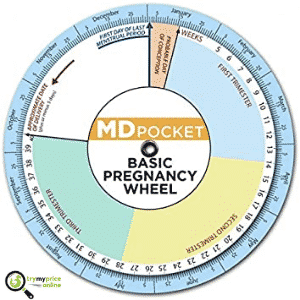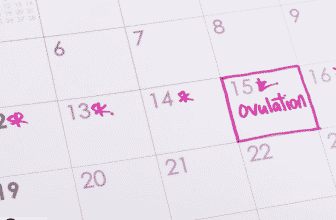
Pregnancy calculator, Pregnancy is the phrase used to describe a woman’s status during the nine-month period during which one or more babies develop inside her. Childbirth typically happens 38 weeks after conception or 40 weeks after the previous menstrual cycle. A normal pregnancy lasts between 37 and 42 weeks, according to the World Health Organization. and to know your exact due date you need to use a pregnancy calculator.
Related: Unisom for pregnancy nausea and how to use it

equate early result pregnancy test faint line
Pregnancy calculator app
While the due date can be predicted, the length of the pregnancy depends on a variety of circumstances.
Including the mother’s age, previous pregnancies, and birth weight.
However, there are still some unknown elements that influence natural variance in pregnancy terms.
According to studies, only around 4% of deliveries occur on the actual due date,
60% occur about a week before the due date, and nearly 90% occur around two weeks of the due date.
As a result, while it is feasible to be quite certain that a person’s child will be born within two weeks of the due date,
It is presently impossible to predict the actual day of delivery.
You can download the app from amazon
Related: Cvs pregnancy test positive faint line and its meaning
Detection of Pregnancy
A missed menstrual period, higher basal body temperature, exhaustion, nausea,
And increased frequent urination are some of the symptoms that can indicate pregnancy.
Pregnancy tests include medical blood or urine tests that can identify pregnancy from six to eight days after conception,
And entail the identification of hormones that serve as indicators for pregnancy.
Clinical blood tests are more precise and can identify exact concentrations of the hormone hCG earlier,
And in smaller amounts than home pregnancy urine tests, but they take longer to interpret and are more expensive.
A clinical urine test is also available, however, these are not always accurate.
Related: Pregnancy test with salt

clear blue pregnancy test results faint line
Management of pregnancy calculator
Medications, weight growth, exercise, and diet are just a few of the things to consider throughout pregnancy,
Many of which are extremely based on the individual’s situation.
- Medications:
Certain medications can have long-term consequences on the fetus if taken during pregnancy.
The Food and Drug Administration in the United States classifies medications into categories A, B, C, D,
And X depending on prospective benefits vs. fetal dangers.
Related: Pregnancy test calculator week by week
- Gaining weight:
Weight gain is an unavoidable and necessary part of pregnancy that differs from person to person.
Many elements of fetal growth are affected, including the baby’s weight, the placenta, excess circulatory fluid, and fat and protein storage.
Because insufficient or excessive weight growth can have harmful consequences for both mother and fetus,
Including the necessity for a cesarean section (C-section) and gestational hypertension, weight control is worth considering.
Related: What week of pregnancy am i in
- Exercise:
According to research, aerobic activity during pregnancy can assist improve or maintain physical fitness while also lowering the incidence of C-sections.
Regular aerobic and power exercise is often suggested for pregnant women,
And women who regularly exercise before pregnancy.
And had straightforward pregnancies should be able to maintain high-intensity exercise programs.
Related: B6 And Unisom during Pregnancy: Is It Safe?
Pregnancy calculator

Finally, remember that pregnancy calculator could help you know your due date, but you also need to ask your doctor to make sure.
References:







